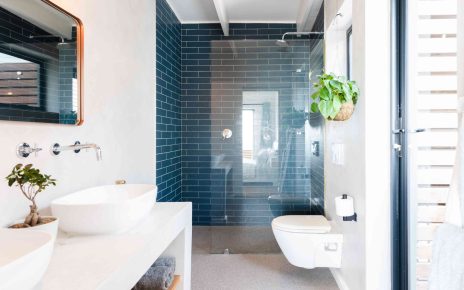In the realm of kitchen renovations, eco-friendly flooring options are gaining traction, appealing to homeowners who prioritize sustainability without sacrificing style. Modern advancements in flooring technology are broadening the horizons for those looking to make environmentally responsible choices. Here’s a look at some of the top eco-friendly kitchen flooring materials that offer both durability and design versatility.
Bamboo: Fast-Growing and Durable
Bamboo flooring is a favourite among eco-conscious homeowners due to its rapid regrowth rate and hardwood-like qualities.
Advantages of Bamboo Flooring
- Sustainability: Bamboo can regenerate to its full mass in just six months, making it a highly renewable resource.
- Strength and Durability: It is harder and more durable than many traditional hardwoods, making it suitable for the high traffic of kitchens.
- Style Versatility: Bamboo flooring comes in various shades and can be stained to fit any kitchen style.
Cork: Soft and Sustainable
Cork is not only sustainable but also offers unique benefits that are particularly advantageous for kitchen settings.
Advantages of Cork Flooring
- Eco-Friendly Material: Cork is harvested from the bark of the cork oak tree, which regrows, making it a sustainable choice.
- Comfort and Safety: The softness of cork provides comfort underfoot and can relieve strain from standing. It’s also naturally fire retardant.
- Noise Reduction: The porous nature of cork helps in reducing noise, a beneficial feature for busy household kitchens.

Recycled Glass Tiles: Vibrant and Versatile
For those looking for a bit of sparkle and vibrancy, recycled glass tiles offer an eco-friendly way to add colour and reflect light in the kitchen.
Advantages of Recycled Glass Tiles
- Reduced Waste: Made from recycled bottles and other glass products, these tiles keep glass out of landfills.
- Wide Range of Colours: Glass tiles come in a plethora of colours and designs, perfect for creating a custom backsplash or flooring.
- Easy to Maintain: Glass tiles are non-porous and resist stains and spills, making them ideal for the mess-prone kitchen environment.
Linoleum: Natural and Biodegradable
Linoleum is experiencing a resurgence, gaining popularity for its sustainable ingredients and retro appeal.
Advantages of Linoleum Flooring
- Made from Natural Materials: Linoleum is made from linseed oil, wood flour, and jute, all of which are natural and biodegradable.
- Durability: It is incredibly durable and can last up to 40 years if properly maintained.
- Antibacterial Properties: Linoleum is naturally antibacterial, making it a great flooring option for kitchens.
Making the Eco-Friendly Choice
When selecting the best eco-friendly flooring for your kitchen, consider the sustainability of the material as well as its performance in a high-use area like the kitchen.
- Consider Your Lifestyle: Think about your kitchen’s traffic and activities. Materials like bamboo and linoleum are durable and can handle more intense usage.
- Aesthetic Fit: Choose a material that complements the design of your kitchen. Recycled glass tiles can add a modern touch, while bamboo provides a classic warmth.
- Maintenance Needs: Go for flooring that matches your willingness to maintain it. Cork and linoleum require regular sealing to stay waterproof and durable.
Opting for eco-friendly kitchen flooring doesn’t mean compromising on style or functionality. Materials like bamboo, cork, recycled glass, and linoleum not only offer beautiful, unique flooring options but also promote a healthier environment through sustainable practices. Choosing one of these materials ensures your kitchen floor is not only visually appealing but also a testament to your commitment to environmental conservation.





